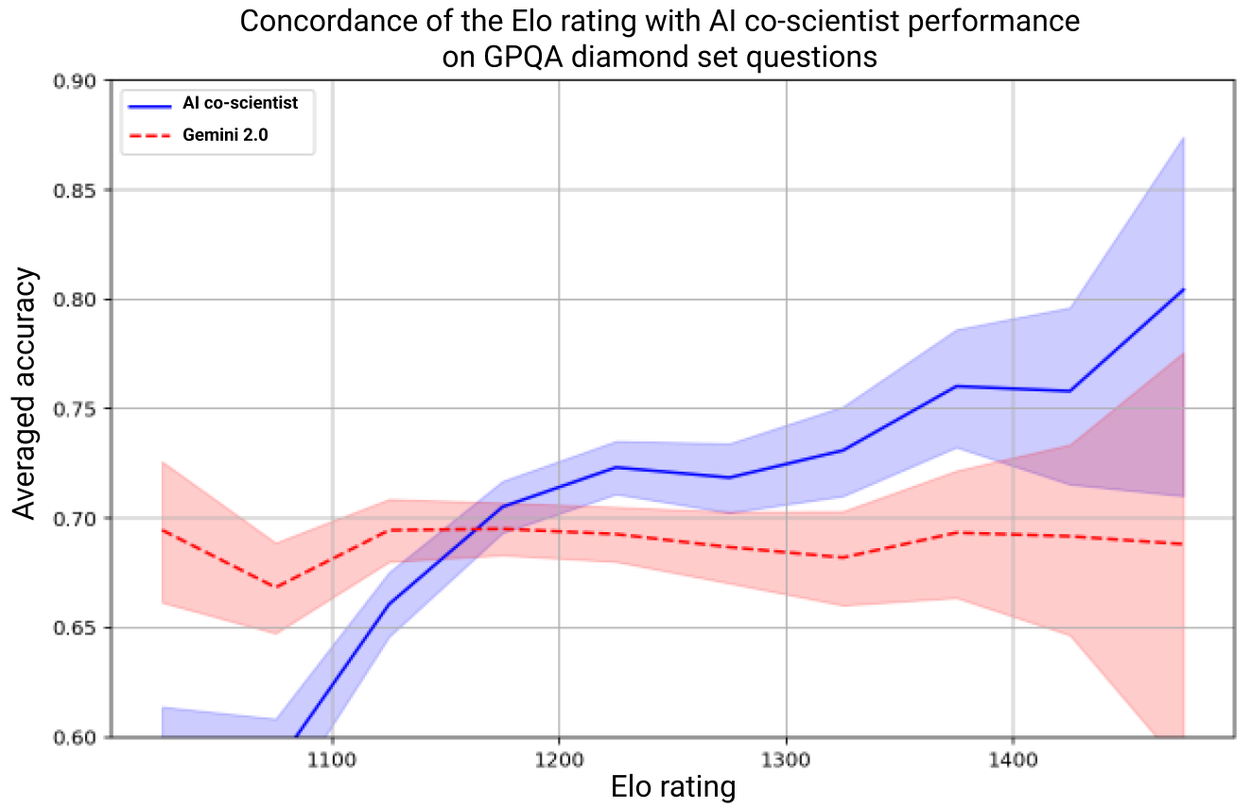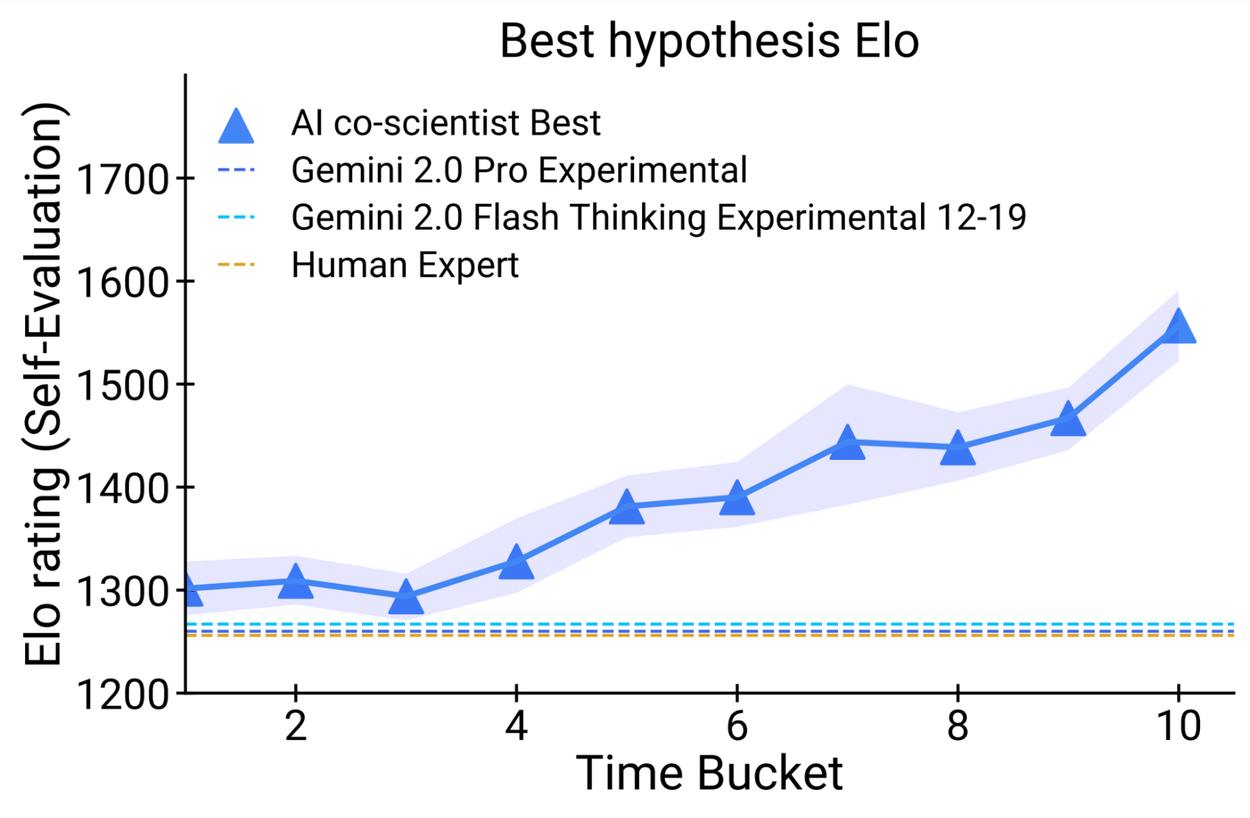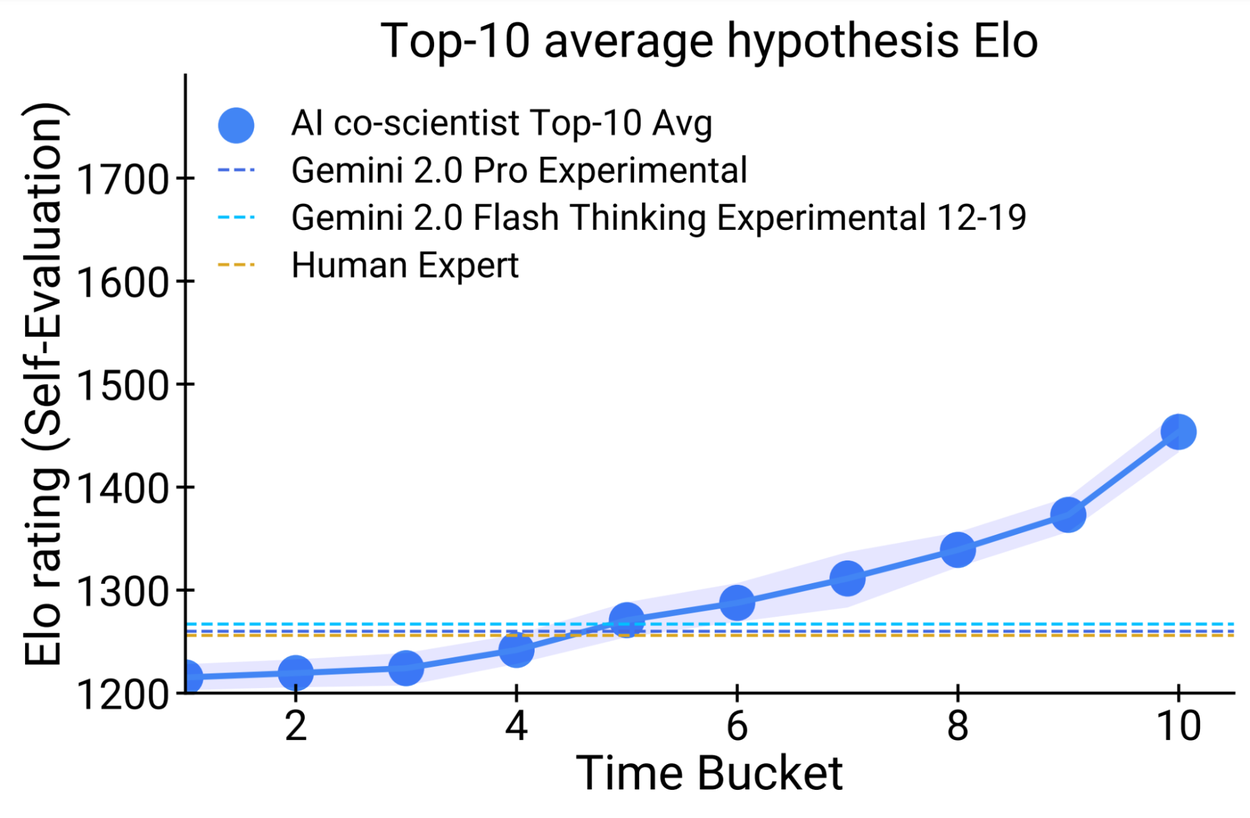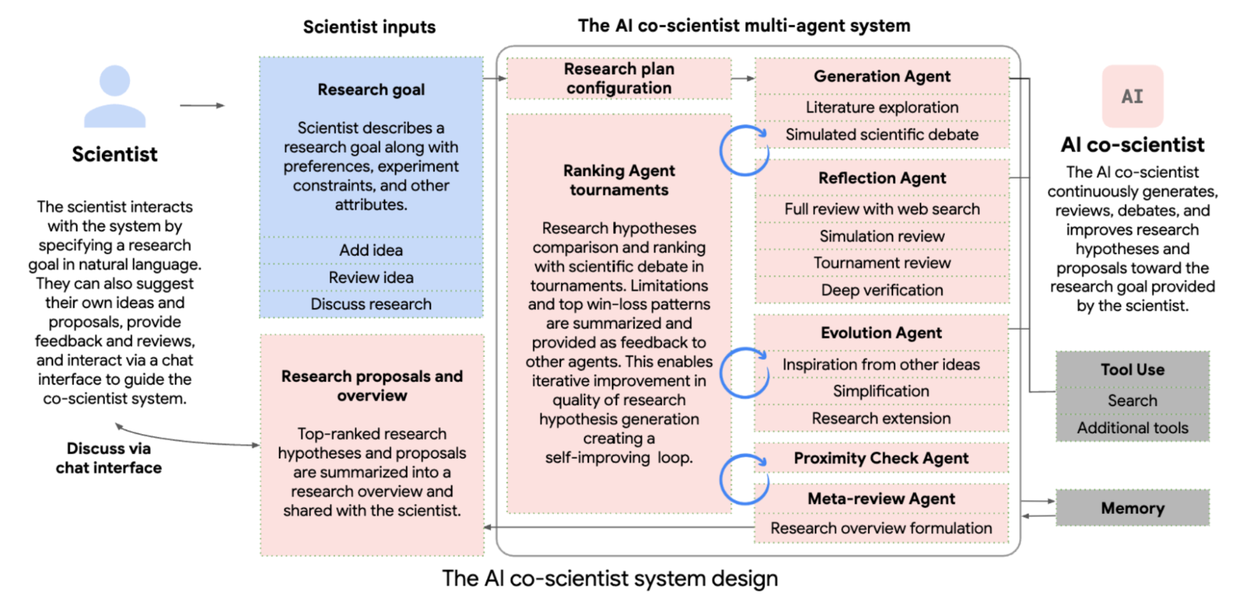AI_co-scientist
by GoogleAI co-scientist is a multi-agent AI system developed by Google to assist researchers in handling various scientific tasks, including research topic selection, literature review, and experimental design.
What is AI co-scientist?
AI co-scientist is a multi-agent AI system developed by Google, designed to function as a virtual research assistant. It helps researchers manage scientific tasks such as research topic selection, literature review, and experimental design. Powered by Gemini 2.0, the system employs multiple agents for generation, reflection, ranking, and evolution to simulate the entire scientific research process.
Main Features of AI co-scientist
- Understanding Research Objectives: Scientists describe research goals in natural language, and the system generates relevant research hypotheses and experimental plans.
- Generating Innovative Hypotheses: The system explores literature and simulates scientific debates to generate novel research hypotheses.
- Experimental Design: The system proposes detailed experimental plans, including steps, expected results, and validation methods, and evaluates feasibility.
- Self-Optimization: The system continuously optimizes the quality of hypotheses through "hypothesis tournaments" and evolutionary processes.
- Literature Review and Integration: The system quickly reviews and summarizes relevant literature, integrating existing research findings to support new research directions.
Technical Principles of AI co-scientist
- Multi-Agent Architecture: The system consists of multiple agents, including Generation Agent, Reflection Agent, Ranking Agent, Evolution Agent, Proximity Check Agent, and Meta-Review Agent. Each agent performs specific tasks, working together to complete complex scientific reasoning tasks.
- Test-Time Computation: The system dynamically allocates computational resources during reasoning, enhancing its reasoning capabilities by extending reasoning time.
- Elo Rating Mechanism: The system uses the Elo rating mechanism to automatically assess the quality of generated hypotheses and research plans. The higher the Elo score, the better the hypothesis.
- Simulating Scientific Methods: The system simulates the entire scientific research process (including hypothesis generation, verification, and improvement) to generate high-quality research plans. The design is inspired by the "hypothesis-verification" cycle in scientific research.
- Natural Language Processing: Based on Gemini 2.0, the system understands and generates natural language, allowing scientists to interact with it naturally, describe research goals, provide feedback, or receive system outputs.
- Tool Integration and Expansion: The system integrates with external tools (such as literature databases and specialized AI models) to expand its capabilities, for example, verifying protein structure designs with AlphaFold.
Application Scenarios of AI co-scientist
- Drug Repurposing: Quickly finding new uses for existing drugs, such as identifying new drugs for acute myeloid leukemia (AML), saving R&D time and costs.
- Target Discovery: Identifying new therapeutic targets, such as proposing new epigenetic targets in liver fibrosis research, aiding new drug development.
- Resistance Mechanism Research: Exploring bacterial resistance mechanisms, such as proposing hypotheses on the interaction of phage-induced chromosomal islands, providing new ideas for antibacterial strategies.
- Experimental Design: Generating innovative hypotheses and detailed experimental plans for biomedical research, improving research efficiency.
- Interdisciplinary Research: Integrating knowledge from multiple fields, breaking down disciplinary barriers, and accelerating interdisciplinary research on complex diseases.
Features & Capabilities
What You Can Do
Research Topic Selection
Literature Review
Experimental Design
Hypothesis Generation
Drug Repurposing
Target Discovery
Resistance Mechanism Research
Categories
AI Research Assistant
Multi-Agent System
Scientific Research
Gemini 2.0
Drug Repurposing
Target Discovery
Experimental Design
Natural Language Processing
Interdisciplinary Research
Biomedical Research
Example Uses
- Drug Repurposing
- Target Discovery
- Resistance Mechanism Research
- Experimental Design
- Interdisciplinary Research
Getting Started
Pricing
free
Screenshots & Images
Primary Screenshot

Additional Images



